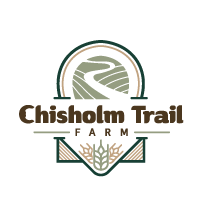Want to know one of nature’s best-kept secrets? It's einkorn—an ancient grain that’s quietly making its way back into kitchens for good reason. And if it hasn’t landed in your pantry yet, don’t worry. Einkorn tends to fly under the radar… until you try it once and wonder how you ever lived without it.
Here at Chisholm Trail Farm, we’ve been growing wheat for four generations. Over the years, food trends have come and gone, but what we’re seeing with einkorn wheat berries is different. People are looking for food that does more than just fill a plate. They want food that fuels their bodies, supports their families, and comes from land that’s cared for, not just used.
What Is Einkorn?

Einkorn (say it with us: ain-corn) is the oldest cultivated wheat on earth, dating back over 12,000 years. It’s remained untouched by modern modification, which means you’re getting the original, nutrient-dense version of wheat—no cross-breeding, no hybridization.
Here’s what makes einkorn special:
- It contains just 14 chromosomes (compared to 42 in modern wheat), giving it a simpler gluten structure
- It’s packed with vitamins, antioxidants, and healthy fats
- It may be easier to digest for folks with mild gluten sensitivities (note: not safe for those with Celiac disease)
When you eat einkorn, you’re tasting wheat in its purest form, rich, golden, slightly nutty, and deeply satisfying.
Why Einkorn Is Having a Comeback
We understand that there are numerous “superfoods” available. But einkorn isn’t just a trend. It’s a return to what food was always meant to be: nourishing, whole, and grown with care.
Unlike highly processed modern flour, einkorn is naturally rich in:
- Riboflavin (Vitamin B2): Supports metabolism and helps your body absorb fats, carbs, and protein
- Beta carotene (Vitamin A): Promotes strong immunity, healthy skin, and good vision
- Lutein: A powerful antioxidant that protects cells and supports long-term eye health
- Magnesium, zinc, and iron: Critical minerals often lost in modern milling
Due to its low gluten content and high nutrient density, many people experience increased energy, fewer crashes, and improved digestion when they switch to einkorn.
How We Grow Einkorn at Chisholm Trail Farm
Einkorn isn’t like other wheat. It’s slower to grow. It doesn’t love being rushed. And it thrives when the soil it grows in is alive and healthy.
That’s why we use regenerative practices that prioritize the long-term vitality of our land:
- Cover crops to feed the soil through all seasons
- Minimal tillage to protect soil structure and microorganisms
-
Thoughtful crop rotation to maintain balance and biodiversity
We don’t farm to meet a certification. We farm based on a relationship with the soil, the grain, and the people we feed. That’s how we grow wheat that’s good for the land, good for your gut, and good for your table.
We also work with a Minnesota Crop Improvement Association (MCIA)-approved facility to clean our einkorn, ensuring every bag we ship is high-quality and ready for your kitchen.
- Non-GMO
- No glyphosate
- Small batch milled or whole and fresh
But How Do You Use It?
We hear this a lot: “Einkorn sounds great… but what do I do with it?” Good news: it’s more versatile than you might think. Whether you're a home baker or just experimenting with better grains, einkorn can find a spot in your routine.
Use Whole Einkorn Berries Like Rice or Farro
Cooked einkorn berries have a satisfying chew and a nutty, almost buttery flavor. They work beautifully in:
- Salads with seasonal veggies and vinaigrette
- Hearty soups or chilis
- Breakfast bowls with fruit, honey, and milk
- As a replacement for rice or pasta in weeknight meals
To cook:
Rinse 1 cup einkorn wheat berries. Add 3 cups of water or broth. Simmer for 30–40 minutes until tender. Drain and serve.
(Pro tip: Cook extra—einkorn stores well in the fridge for up to 5 days.)

Mill It Into Flour for Baking
Freshly milled einkorn flour is golden, fragrant, and full of flavor. You can use it in:
Muffins, cookies, and quick breads
Pancakes and waffles
Rustic sourdough or naturally leavened loaves
Note: Einkorn absorbs less water and has a stickier dough than modern wheat. Don’t be afraid to play with your recipes—it’s worth the learning curve for the richness and tenderness you’ll get in return.
Einkorn FAQ
Is einkorn gluten-free?
No. But it’s lower in gluten and hasn’t been modified, making it easier to digest for some people. If you have Celiac disease, we do not recommend einkorn.
Does it taste different?
Yes. It has a nutty, slightly sweet flavor and a deeper, more complex finish. Once you’ve baked with it, it’s hard to go back.
Do I need special tools?
Nope. To cook whole berries, all you need is a pot. To mill flour, a countertop mill or high-powered blender works great.
Why Einkorn from Chisholm Trail Farm?
We're not just growing grain; we're growing food that nourishes people. In the simplest form, it's food with roots and food that lasts.
Our einkorn is:
- Grown with regenerative practices that protect the land
- Harvested and packaged by our family with care
- Milled in small batches, so it's fresh, not factory-aged
We're proud of every bag that leaves this farm. It's the kind of product we'd put in our own pantry— and we do!
Try Einkorn for Yourself
We harvest and mill our einkorn wheat berries in small batches to preserve their quality and nutrition. If you'd like to give it a try, we're excited to announce that it will be available for purchase soon! Now is a great time to prepare your summer baking recipes!

